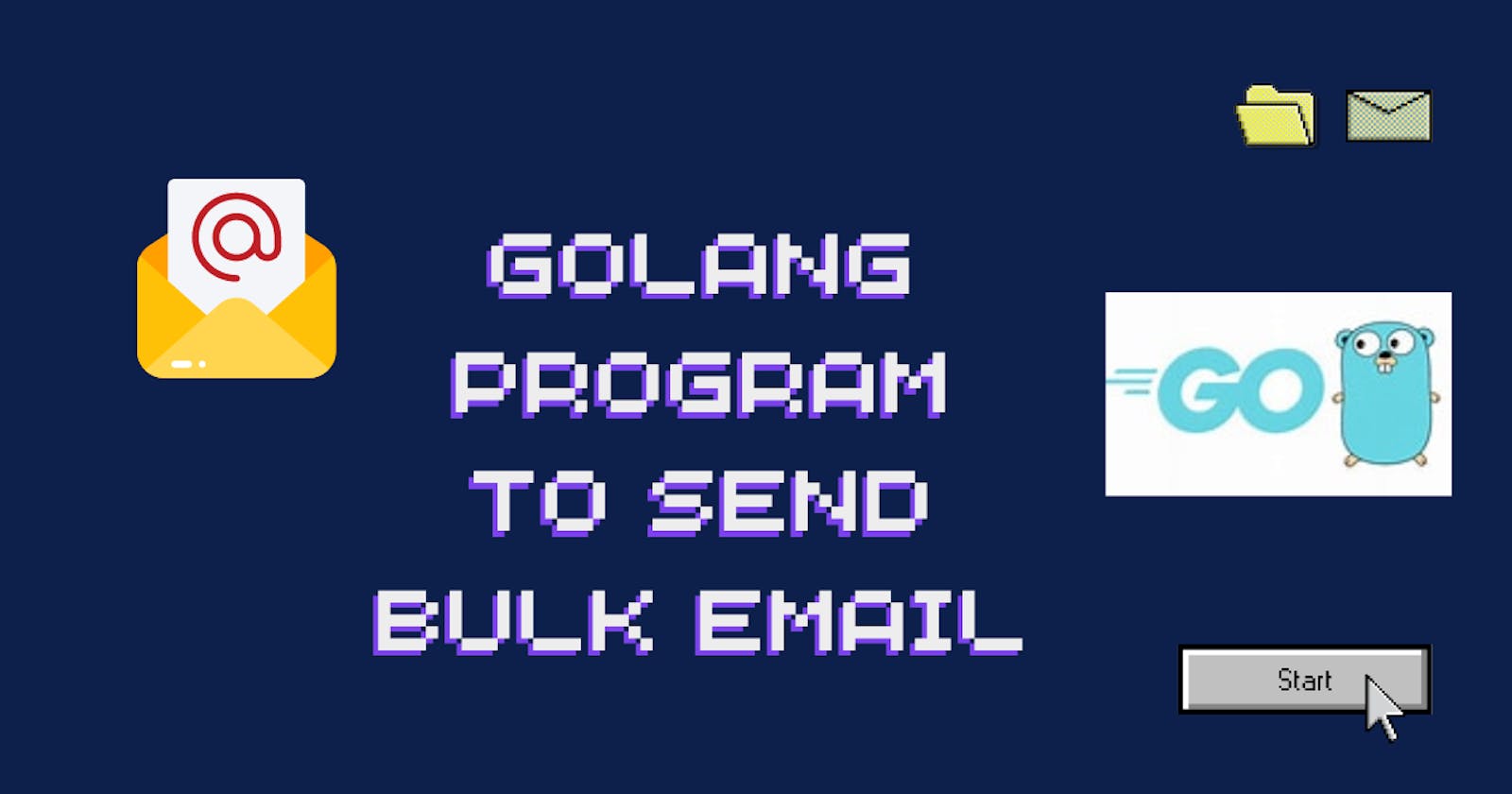In this tutorial, we'll delve into the creation of a Golang program for sending bulk emails through the Simple Mail Transfer Protocol (SMTP) with custom reply_to and rich HTML support. Utilizing the built-in net/smtp package and the external github.com/joho/godotenv package for environment variable management, you can seamlessly set up and configure your Golang project to efficiently dispatch emails.
Access the complete source code on my GitHub repository.
This blog is the part of Golang series, click here to see the series
Prerequisites
Golang is installed on your device.
Access to an SMTP server for sending emails.
Code
Install Dependencies
go get github.com/joho/godotenv
Create a .env file
# Rename this file to .env
# SMTP credentials
SMTP_USERNAME=""
SMTP_PASSWORD=""
# SMTP server information
SMTP_HOST=""
SMTP_PORT=""
# Senders email address
FROM_EMAIL=""
Create a main.go file
package main
import(
"fmt"
"github.com/joho/godotenv"
"log"
"os"
"net/smtp"
)
func main(){
// Loading environment variables
err := godotenv.Load(".env")
if err != nil {
log.Fatalf("Error loading environment variables file")
}
// SMTP server Credentials from .env file
SMTP_USERNAME := os.Getenv("SMTP_USERNAME")
SMTP_PASSWORD := os.Getenv("SMTP_PASSWORD")
SMTP_HOST :=os.Getenv("SMTP_HOST")
FROM_EMAIL :=os.Getenv("FROM_EMAIL")
SMTP_PORT :=os.Getenv("SMTP_PORT")
log.Println("SMTP CREDS init ",SMTP_USERNAME, " ", SMTP_PASSWORD," ",SMTP_HOST )
// Setup authentication variable
auth:=smtp.PlainAuth("",SMTP_USERNAME,SMTP_PASSWORD,SMTP_HOST)
// List of emails you want to send the email
// toList := []string{"email1@gmail.com","email2@gmail.com","email3@gmail.com"}
toList := []string{"recipient1@gmail.com"}
// mail
subject:="Test Golang Program"
body:="<html><body><h1>Hello, this is an HTML-rich email template!</h1></body></html>"
// Can add custom reply-to email ID, leave blank to use the default
reply_to:=""
if reply_to==""{
reply_to=FROM_EMAIL
}
var msg []byte
//For basic text
// msg = []byte(
// "Reply-To: "+reply_to+"\r\n"+
// "Subject: "+subject+"\r\n" +
// "\r\n" +
// body+"\r\n")
//For rich html support
msg = []byte(
"From: "+FROM_EMAIL+"\r\n"+
"Reply-To: " + reply_to + "\r\n" +
"Subject: " + subject + "\r\n" +
"MIME-version: 1.0;\nContent-Type: text/html; charset=\"UTF-8\";\r\n" +
"\r\n" +
body + "\r\n")
// send the mail
err = smtp.SendMail(SMTP_HOST+":"+SMTP_PORT, auth, FROM_EMAIL, toList, msg)
// handling the errors
if err != nil {
log.Println(err)
os.Exit(1)
}
fmt.Println("Successfully sent mail to all user in toList")
}
Run the code
go run .
Conclusion
This step-by-step guide walks you through the process of setting up your Golang project, configuring SMTP credentials, and running the program to send bulk emails effortlessly. Enhance your Golang skills while accomplishing the practical task of email communication. This blog adheres to the standards of 2024.
Feel free to explore and customize the code for your specific needs. Happy coding!
